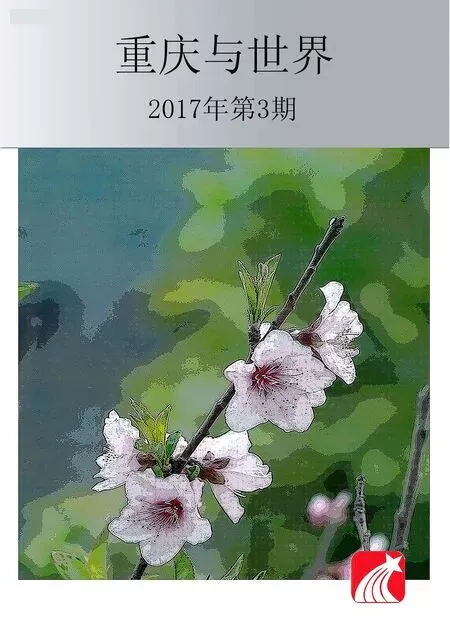忆山城“黄家巷”旧事
2017-03-21杨艳马岩岩
□ 文/本刊记者 杨艳 图/马岩岩
忆山城“黄家巷”旧事
□ 文/本刊记者 杨艳 图/马岩岩

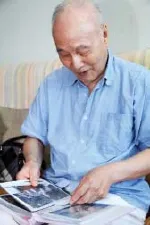
黄锡滋之孙黄纲济摄影:杨艳
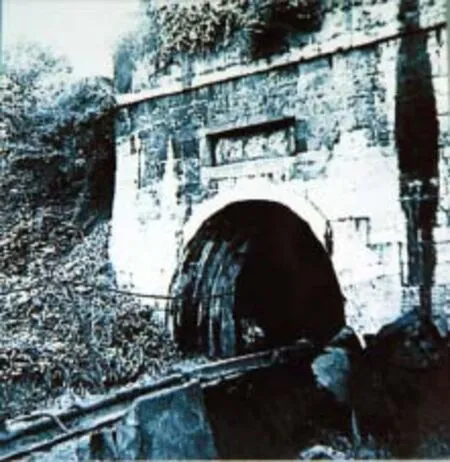
1922年,黄锡滋在北碚代家沟开掘锡滋洞矿井。
在南岸南滨路黄家巷一带,小街小巷纵横交错,长长短短、宽宽窄窄,这里曾是重庆20世纪20年代最繁华的市井街区,曾聚集各大洋行,船厂见证了那个时代的荣光。如今尽管大部分民居已是旧瓦破墙、危房闲置,但随着南岸龙门浩历史文化街区的改造,又将重新恢复昔日活力。
说到黄家巷就不能不提一个商业奇才—黄锡滋,黄家巷的名字也因他而取。事我们有幸找到了黄家的后人黄锡滋之孙—黄纲济,曾经拥有显赫家世背景,成长于家缠万贯的家庭,陪伴在黄锡滋身边数十年载,经历过家族风云变幻的老先生。今年已经85岁高龄的他头发花白,虽然说话已有些喘气,但对于祖父黄锡滋的记忆,他依旧深刻。
黄氏经商之道 幕后谋生意
说起黄锡滋的发家史,黄老先生说他的祖父出生于清末光绪年间,从小过继给曾祖父的二房兄长,因其过世,就获得十余万两白银的遗产。随后娶了他的祖母,在都邮街(现为解放碑)购置地产,建了新宅。那时是1909年,他的祖父才26岁。
当时重庆作为重要的水陆口岸,又是川盐的重要运销地,来自自贡的川盐都得经过重庆码头,销往位于下游的湖北沙市。就在1911年,黄锡滋和友人一起创办了“天锡生”。自古以来,食盐是官办,“天锡生”就凭借当时执行的盐税制度,黄锡滋看出其中暗存商机,首先筹集大量资金,靠低买高卖的方法,从而获得丰富的利润。随后,黄锡滋将所获得的利润继续投入生意,扩大经营,开设了多家商贸流通字号。在盐号生意之后,又经营了棉纱、布匹、盐、糖、油、山货等大宗批发业务,货物通过川江运输,为了让自家生意在江上运输更加便利,黄锡滋又筹集大量资金,购买了轮船参与川江运输。
黄锡滋的资产最高时达到500万两白银之多,可是他这一生却不曾离开过重庆。黄老先生回忆说,他祖父去过最远的地方就是江北唐家沱,而那一次还只是为了看一看自家新买的轮船。“当时祖父准备去一趟上海,全家为他准备了日常物品,并且在福源轮上准备了大包间,可是临到出发时,轿子已停在堂屋了,他却临时决定不去了。”至于什么原因,黄老先生也不记得了,他说祖父的脾气一向让人猜不透,他是一家之主,主要精力放在生意上,家里的孩子跟他总有些生分。
关于如何将生意做大,黄老先生说:“祖父总是呆在家里‘幕后遥控’,他的记性好得惊人,在他的脑子里存着一个活账本,各条账目他总能信手拈来。不常去店铺,也很少在外应酬。每天晚上伙计关店后,到黄家汇报商议得失,他再出谋划策,小事交由伙计处理,大事交由父亲或叔父去处理。”不爱抛头露面的黄锡滋,不喜于结交官宦权贵,也从不去店铺巡视,不善外交的他能成功地从盐号生意起步,并在后来拥有从重庆到上海的两艘最大的客轮,在外界看来就是一个传奇。黄老先生说,虽然祖父不喜欢结交官宦军阀,但他总是支持自己的好友去当商会会长,去结交达官贵人,以求自己的生意得到友人的庇护,这也是黄锡滋独特的处世之道。
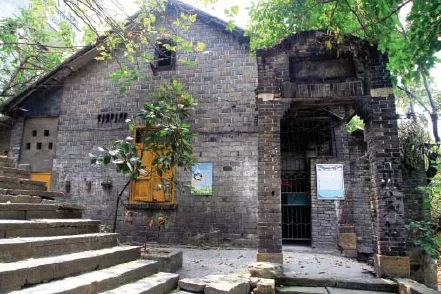
在跌宕的历史岁月里,如今的黄家巷子仅剩几栋旧房,房屋虽已破败不堪,但仍然透出高贵、优雅的贵族气息。
黄家大院 老宅记忆
黄老先生出生于上世纪30年代,他就在都邮街长大,那一带曾经繁华无比。自从黄家做起了轮船生意之后,由于航运码头需要大量的仓库,黄家专门在南岸区玄坛庙买下一大块荒地,就地修建了聚福洋行轮船公司,旁边还有几栋住宅别墅,一大片房子、堆栈、煤场拔地而起,今天我们站在南岸龙门浩历史老街还能隐约看到当年的轮廓。在当时有名的聚福堆栈旁,设立了几栋花园别墅,其实是作为黄家避暑大院。其中,还有聚福巷、黄家巷,这两个地名就在那时而得名。
年年夏天,祖父母就与家里大大小小的孩子渡江到南岸避暑。据黄老先生回忆说,他们一家老小加随身佣人,出行队伍浩浩荡荡,每次出发就在公馆门口坐自家汽车到朝天门码头,然后再坐人力轿子,到达江边坐海关的小汽船。那时他个子小,挤在祖母的轿子里。轿子也被抬上船,撂在船舱顶上,当船靠岸后,再放下轿子,黄家人就坐轿到聚福堆栈,离它不远处便是黄家院子。
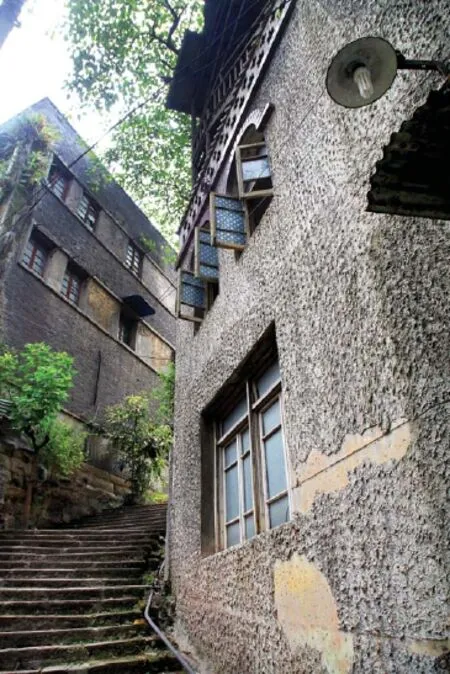
黄家巷曾见证了重庆的开埠文化。
黄老先生说:“那时老院子所在的那一带的居民稀少,环境清静又优美,离城区又近,特别适合度假。那时的南岸没有电,晚上就用柴油机发电。院子里有一个电话,是黑色的老式手摇电话,方便黄家与城里(现渝中区)保持联系。”从每年端午开始,黄家两老就和孩子们在南岸住上一两个月的时间,他的父亲和叔父因忙于公事,不能一同前往。待天气凉快后,学校快开学了,他们就返回市区。
说起黄家大院,黄老先生更习惯称之为“黄家花园”,随着时移世易,城市建设发生了巨大的变化,1927年修建的黄家大院早已不是原来的模样。黄家人在此一共住过24个年头的黄家大院,在当年气派不凡,是由一栋主楼和几栋裙楼构成,面积宽敞,院内本来还有五六个小院儿,现在已找不到小院的痕迹,小院安排给亲朋好友居住,而黄家人就住在主楼里,两层楼的砖木结构,中西合璧式风格,面向长江,还可远眺江北城。那时黄老先生和其他孩子一起住在主楼的二楼里,祖父和祖母就住在一楼,出入方便。客厅、饭厅设置在一楼,厨房安置在离主楼最近的裙楼里,保姆和佣人就住在裙楼,黄家有任何需要,能在最短时间得到回应。
据黄老先生回忆,祖父黄锡滋留给他最深的印象就是少有出门。即使是在南岸避暑的那两个月,白天也总是呆在房间里,夜深了才入睡,直到次日中午才起身。在他的记忆里,祖父的身体一直欠佳,偶尔见到祖父走到庭前的草地上散一会儿步,然后就回房,不再出来。“住在城区的时候,大概每晚的9点左右,城中有名的中医赵云甫就准时来到家里给祖父看病把脉,按惯例给祖父开药单子,随后就默默离开,佣人将煮好的中药,一小碗一小碗地端进房,但是他好象都不怎么吃,偶尔喝一小口,佣人就进房端出来,大家也司空见惯了。”
黄家大院不仅是黄家的避暑之地,还曾是一家人的避难之所。当年日本肆意侵略山城,渝中区处在水深火热的战火之中,南岸则相对较安全。那时黄老先生跟随祖父祖母,搬到南岸避难,至今他还清楚地记得,黄家大院的厨房后面有一个防空洞,当警报响起来,除了祖父,一家老小都躲进防空洞,黄家还特许附近的一些居民躲在里面。然而,祖父依旧呆在自己房间里,门窗紧闭,只有一个佣人陪着他。
后来,一个大家族渐渐随着时代更迭而衰败,具有传奇色彩的黄氏大家如今已成过去,黄家巷也早已没有显赫的私家避暑别墅。1951年黄家将避暑别墅捐给了国家,后来作为茶叶公司。迄今,在黄家巷子还能找到刻有“黄锡滋产业”字样的标志,现在黄锡滋别墅已列入龙门浩历史文化街区文物保护单位,通过对历史文化街区的打造,再现重庆自1891年开埠以来至抗战时期的城市风貌。
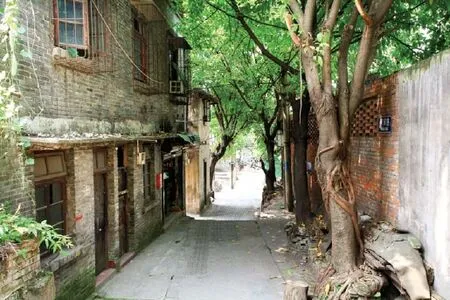
黄家巷历经百年沧桑,仍保持着独特的魅力。
There are many crisscrossed streets and alleys, long or short and wide or narrow, at Huangjia Alley, Nanbin Road, Nan’an District in Chongqing, which was the most prosperous place in 1920s. Many foreign banks and shipyards, which witnessed the prosperity at that time, once gathered here. Although most of the current houses along Huangjia Alley are dilapidated buildings lying idle with old tiles and broken walls, this place will revive with the reform of the historical and cultural blocks of Longmenhao, which is surely the best way to honor the past.
Speaking of Huangjia Alley, we have to mention the genius business man, Huang Xizi, who was the reason to name the alley as Huangjia Alley. In several famous families in Chongqing, he was a legend in the field of business. Fortunately, after a century we have found Huang Gangji, the grandson of Huang Xizi, a senior man who grew up in a famous and rich family, accompanying his grandfather more than ten years and experiencing the changes of his family. The journalist has met him once four years ago. He is 85 years old now with gray hair and panting talk, but his grandfather still impresses him.
Do Business Behind-the-Screen
The Huangs’ Way for Business
As for the history of Huang Xizi, Mr. Huang said that his grandfather was born in the reign of Guangxu in the late Qing Dynasty and adopted by the elder brother of the great-grandfather, then he inherited more than 100,000 silver dollars (about 20 million yuan) after his foster father died. After his grandfather’s marriage, his grandfather bought real estate in the Duyou street of Jiefanfbei and built the new house. That was in 1909, and his grandfather was only 26 years old.
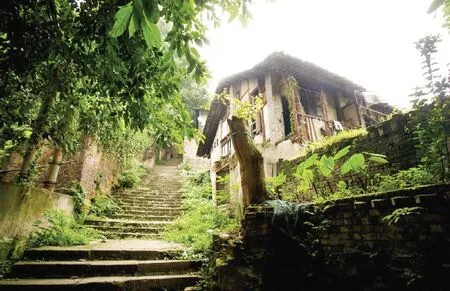
At that time, Chongqing was not only the important water and land port, but also the core place of transport and sale of Sichuan salt. The Sichuan salt from Zigong via the Chongqing wharf, was sold to Shashi in Hubei Province in the downstream. In 1911, Mr. Huang’s grandfather and his friends established “Tian Xi Sheng”. Salt was governed by the officials since the ancient time, and the Tian Xi Sheng, relying on the present salt tax system, collected investments and got a high profit by buying salt in a lower price and sold in a much higher price. His grandfather invested all the profi ts to enlarge his business and opened many chain stores. After the business of salt, Tian Zi Hao ran the great wholesale business, including cotton yarn, cloth, oil, salt, sugar and products from mountains. All goods were transported through the Chuanjiang River. Then Huang Xizi bought ships by himself to join in the transport of Chuanjiang River.
“The top amount of my grandfather’s property reached 5 million silver dollar, but he never left Chongqing”. Mr. Huang said, the farthest place his grandfather reached was Tangjiatuo, which was to check the new ship. “My grandfather wanted to take a trip to Shanghai then, and we prepared the everyday objects including smoking set and so on, and prepared a room for him on Fuyuan ship, but he decided not to go when it was close to set off, and the sedan chair just stopped in the front of the central room”. Mr. Huang couldn’t remember the specific reason why his grandfather quit, and he said that the temper of his grandfather was uncertain, so there was a distance between the children and his grandfather.
About how to expand one’s business, Mr. Huang said,“ my grandfather always stayed at home to handle everything, and he had a good memory. There was an account book in his mind, and he could handle every account very well. He rarely went to stores or had social engagements. Every night, the employees closed the door and report the gain and loss to his grandfather. Then they discussed it, and he gave advice. The employees dealt with trifl es and my father and uncles dealt with big ones”. Huang Xizi, who did not like to appear in public or socialize with the power as well as tour his stores. He was a legend in other people’s eyes because he was bad at diplomacy but he still started his business in salt successfully and later owned the two biggest passenger ships from Chongqing to Shanghai. Mr. Huang said, although his grandfather did not like to socialize with the power, he supported his friends to be the chairman of the chamber of commerce and made friends with the high offi cials and noble lords who could shield his business. It was Huang Xizi’s unique philosophy of life.
Huang’s Grand Courtyard
The Memory of Old House
Born in 1930s, Mr. Huang grew up in the Duyou Street (now called Jiefangbei), which was prosperous in the old days. Ever since the Huangs started to do the ship business, there was a need for warehouse in the shipping dock. So the Huangs bought a stretch of wasteland to build Jufu Shipping Company andvillas in Xuantan Temple in Nan’an District. A large fi eld of houses, warehouses and coal yards then sprung up. Several garden villas were built beside the then famous Jufu warehouse as Huang’s summer courtyards. The Jufu Alley and Huangjia Alley were named at that time.
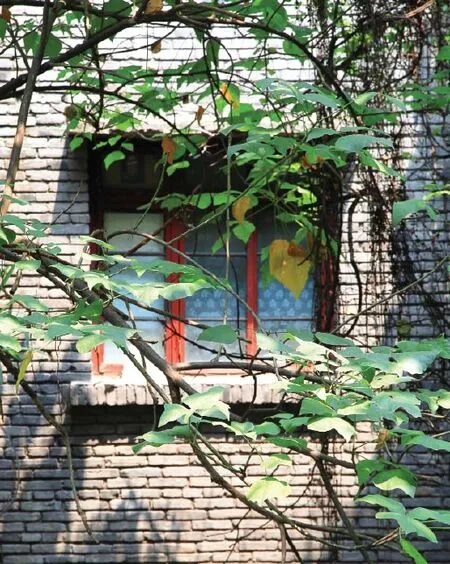
Every summer, Huang Xizi and his wife would take children of the whole family, elder or younger, to cross the river and escape from the summer heat. As Mr. Huang recalled, the whole family and servants made up a vast and mighty travel team, which was very lively. They would set out from their residence to Chaotianmen dock by their own cars. Then they would get to the riverside by manual sedan chair and take little steamers owned by the customs. At that time, his small body crowded into his grandmother’s sedan chair, which would board the ship as well. This sedan chair was put on the top of cabin. After crossing the river, they would come to Jufu warehouse by sedan chair again. The Huangs’ courtyard was around the corner then.
Few people lived in the area of the Huangs’ old house, making a beautiful and quiet place to spend holidays. Back then, Nan’an District didn’t have power system, so diesel engines were used to produce electricity in the evening. The phone in the old house was an traditional hand phone, through which they could keep in touch with the downtown (Yuzhong District). Mr. Huang said, every year, starting from Dragon Boat Festival, his grandparents would stay in Nan’an District for a month or two, together with their children. Huang’s father and uncle couldn’t make the trip due to their busy business. After the weather became cooler, schools were about to start a new term, so they would come back to Duyou street in Yuzhong District.
Speaking of Huang’s courtyard, Mr. Huang would rather call it“Huang’s garden”. With the development of city’s construction, the present courtyard can’t compare with what it used to be. It is said that Huang’s courtyard was built in 1927, in which the Huangs lived for 24 years. With large area, Huang’s family courtyard is made up by a main building and several podiums. Within the courtyard, there are 5 or 6 small courtyards for their friends and relatives to live in. And the Huangs lived in the main building, which was twostory with brick-wood structure. Designed with a combination of Chinese and Western elements, this building faces the Yangtze River, from where they can have a distant view of Jiangbei. At that time, Mr. Huang and other children lived in the second fl oor, while his grandparents in the ground fl oor. The ground fl oor was equipped with the living and dining rooms. And the kitchen is located in the podium that is nearest to the main building. The nannies and servants lived in the podium.
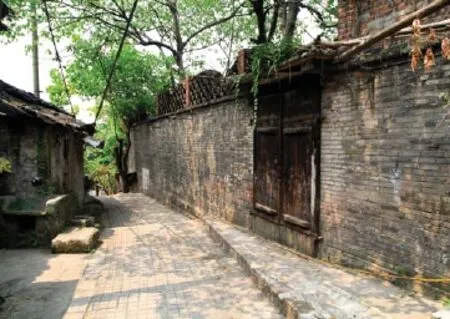
According to Mr. Huang’s memory, what his grandfather Huang Xizi impressed him most is that he seldom came out and killed his time by lying on opium spring couch. In his memory, grandfather was in low spirits all the time. Once in a while, Mr. Huang could see his grandfather walked on the grassland before the yard. Even in the two summer months spent in Nan’an District, his grandfather would stay in the room by day and fell asleep when nights were deep. His grandfather would get up till next noon. “When we still live in Yuzhong District, around 9 o’clock every night, Zhao Yunfu, the famous doctor of traditional Chinese medicine in the city, would come to our home and do diagnosis for grandfather. Zhao would make a prescription and then leave in silence. Servants would place the traditional Chinese medicine on the table, one bowl after another. However, he seldom took the medicine or just took a little, which became a common occurrence.”
Huang’s courtyard was then not only a good summer place to escape from the heat, but also a refuge once. In those years when Japan aggressively invaded China, Chongqing suffered painly in the warfi re. Nan’an District was a relatively safe place. At that time, Mr. Huang, following his grandparents, moved to Nan’an District to hide from the war. Till today, he could clearly remember that there was a bomb shelter behind the kitchen. When the alarm rang, they would get into that shelter except his grandfather. Besides, nearby residents were permitted to hide in it as well. However, his grandfather lied on the opium couch as before, with doors and windows closed. Only a servant kept him company.
Afterwards, a big family was falling down with the time change. The legendary Huang’s Family were gone, and there is no more private summer villa in Huangjia Alley. In 1951, the Huang’s family donated their summer villa to the nation, and which was used for the tea company. Until now, you can fi nd the symbol of“Huang Xizi Property”, which seems to quietly remind the walking people of the past.Currently, the Huang Xizi's house is listed on protection unit of Longmen Hao hitstorical street, it represents Chongqing city scene between the period of port opening and the war of Resistance Against Japan by building the historical cultural district.
To Recall the Past of Huangjia Alley in Chongqing
□ Article/Journalist Yang Yan Pictures / Ma Yanyan
